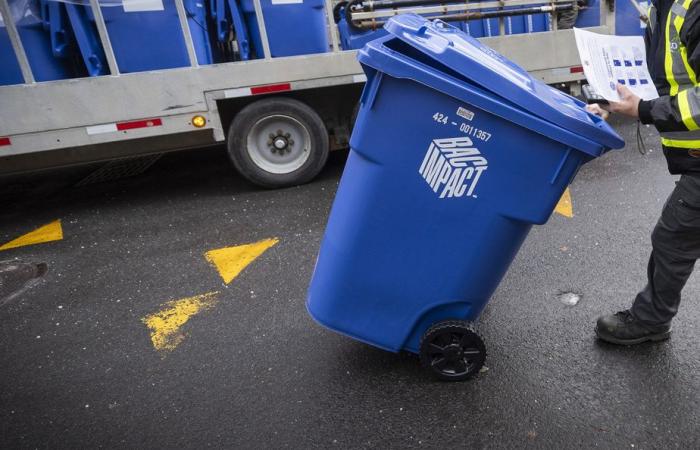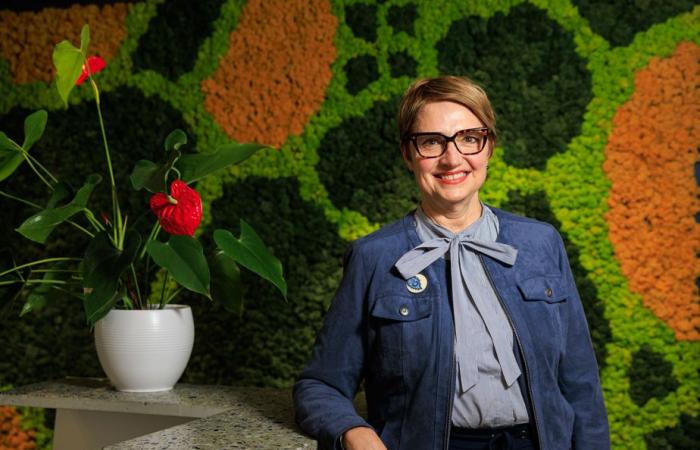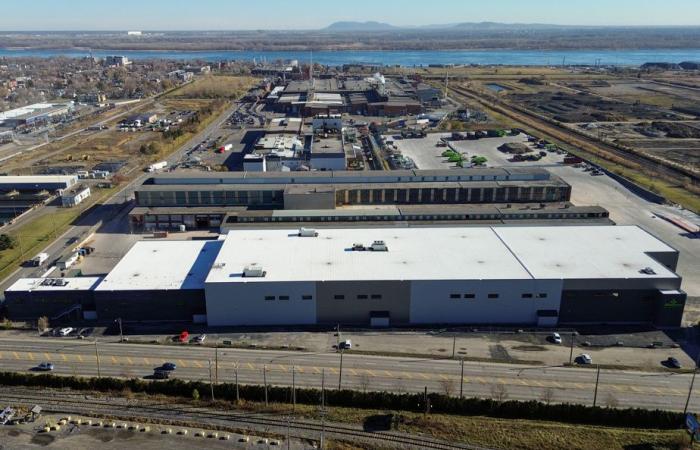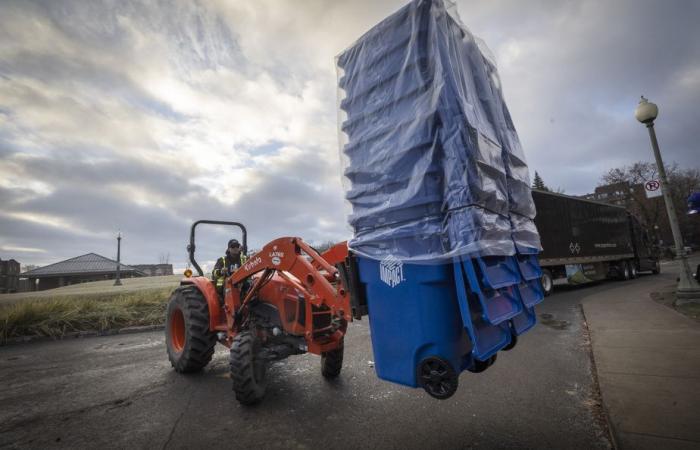Gift wrappers, food containers, bottles, the day after New Year’s Day can give headaches to anyone who does their housework and has to figure out what goes in the trash and the recycling bin. But since this 1is January is simpler.
You can put almost anything that looks like a package or container, and it will be the same rules regardless of the municipality where you are. The Press republishes this text published a few weeks ago to help you find your way.
Posted at 10:28 a.m.
Putting the same things in the recycling bin everywhere in Quebec, increasing recycling rates, making businesses pay instead of municipalities: the reform of selective collection aims to improve recycling and simplify life for the public.
“It’s a real little revolution that we’re about to experience,” says Maryse Vermette, president and general manager of Éco Entreprises Québec (EEQ), the organization representing companies that market packaging, containers and printed materials, now responsible for managing and financing the selective collection system, under the principle of “extended producer responsibility” (EPR).
From 1is January, wherever you are in Quebec, all containers, packaging and printed matter must be placed pell-mell in the recycling bin. Nothing else.
There will only be three exceptions: pressurized metal containers (aerosol), polystyrene protective packaging (which breaks into balls) and biodegradable or degradable plastics.
Even things that have been said to be non-recyclable for years, such as potato chip bags, plastic wrap that covers certain foods or individual yogurt containers, will go in the bin.
“It’s the egg or the chicken”, illustrates Mme Vermette: “these materials were not recovered, due to lack of outlets, but by not recovering them, there was not sufficient volume to develop markets. »
PHOTO HUGO-SÉBASTIEN AUBERT, THE PRESS
The president and general manager of Éco Entreprises Québec, Maryse Vermette
It is hoped that by the end of 2025, markets will have been found for many of these packages.
Maryse Vermette, Éco Entreprises Québec
Entrusting the management of selective collection to a single actor will make it possible to collect larger quantities of materials and make their recycling more profitable, predicts the one who has been planning the implementation of the reform for two years.
Éco Entreprises Québec will also be able to optimize the collection circuits and the processing of materials, by being responsible for the entire system.
” Currently, [le centre de tri de] Thetford Mines takes material from Abitibi. It doesn’t make common sense,” illustrates Mme Presumptuous.
Modernization of sorting centers
Éco Entreprises Québec will invest “tens and tens of millions of dollars” in the modernization of Quebec’s sorting centers over the coming years, in order to improve the quality of the materials that come out and thus sell them at a better price, explains Mme Presumptuous.
“By improving quality, we risk having a return on investment,” she says, adding that the centralized management of the system gives her organization “financial capacity that the sorting centers, individually, did not have” before. .
“Sursorting” centers are also in the plans, to more precisely separate the different types of plastics and “mixed fibers” such as paper and cardboard.
“It is not beneficial to invest in highly sophisticated equipment [pour] all sorting centers in Quebec”, some of which process little volume, indicates Mme Presumptuous.
Three sorting centers in remote regions were recently closed, some of which were transformed into materials transshipment centers, and others could be in the coming years, depending on modernization.
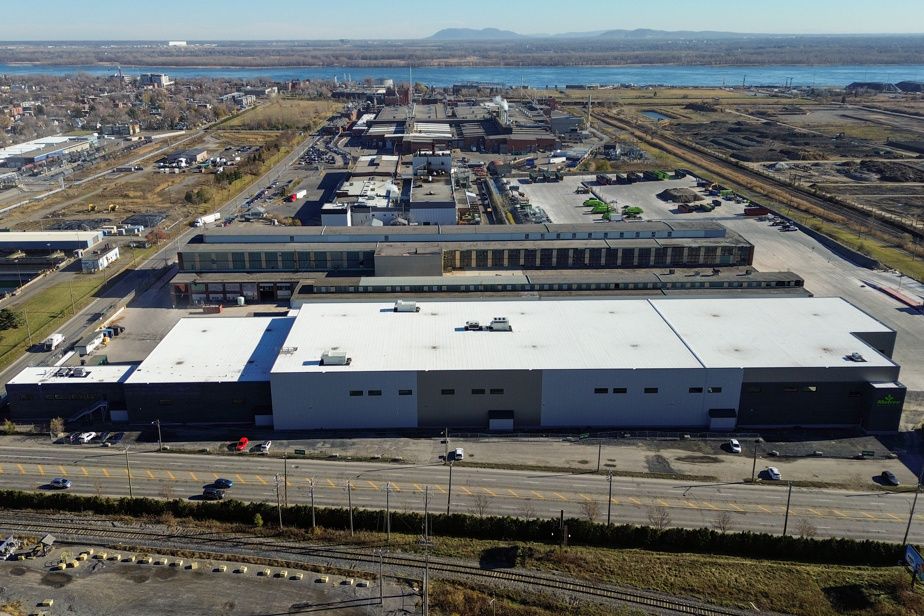
PHOTO FRANÇOIS ROY, THE PRESS
The new recyclable materials sorting center which will open at the beginning of January in Montreal East
A brand new sorting center will come into operation on January 2 in Montreal East, to replace the one, closed due to obsolescence, at the Saint-Michel Environmental Complex, and a call for proposals has been launched to build a new one in Estrie by 2027.
Others are planned in the medium term in the northern suburbs of Montreal and in the Quebec region.
Towards more ecological packaging
To encourage companies to adopt packaging and containers made from materials that are easy to recover and recycle, EEQ will penalize the use of materials that are not with “ecomodulation” of prices, explains Maryse Vermette.
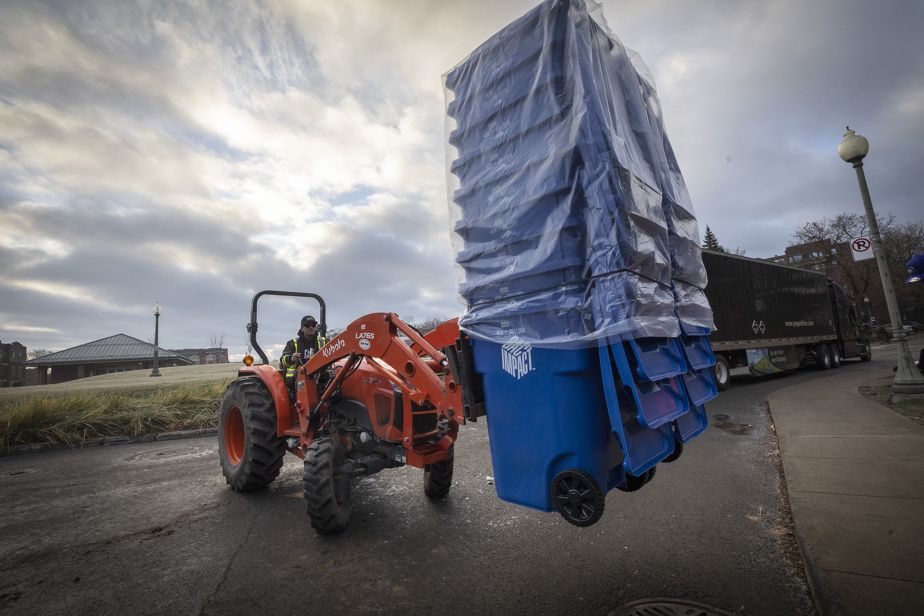
PHOTO PATRICK SANFAÇON, THE PRESS
New Bac Impact collection bins
Companies, whose contribution to financing the selective collection system is determined according to the weight of the packaging they generate, will pay double the rate for polyvinyl chloride (PVC), which makes up, for example, bedding packaging, and for polylactic acid (PLA), from which biodegradable or degradable plastic bags are made.
“We want to send the message that when we make a decision about packaging, there are consequences,” says M.me Vermette, which intends to encourage companies to make more ecological choices.
Companies will also be encouraged to reduce the weight of their containers and packaging, to prioritize those made of a single material rather than a mixture that is difficult to separate, and to stop overpackaging.
The glass stays in the bin… for now
Non-returnable glass containers will continue to be recovered through selective collection, even if the idea of recovering them separately, already mentioned by EEQ, remains on the table. “We were not ready for January 2025,” explains Maryse Vermette, who also says she wants to measure the impact of extending the deposit to glass bottles, the postponement of which to 2027 was announced on Thursday1. Glass recovery bins, which have multiplied in recent years throughout Quebec, will remain in place. “It’s already a habit for the citizen,” underlines M.me Vermette. We take the system as it is. »
1. Read the article “Deposit on beverage containers: Quebec launches an investigation and postpones its reform”
Recovery in the Far North
One of the biggest challenges posed by selective collection reform is the obligation to recover recyclable materials in isolated communities, mainly in Nord-du-Québec. “We are in the process of implementing a system in communities that have never recovered,” indicates Maryse Vermette. Only two shipments by boat per year will be possible, which will require storage locations and an on-site presorting system, she explains. A pilot project will begin in 2025, with a view to full implementation thereafter. Another new feature: multi-residential buildings and small institutions, businesses and industries will now also be served by selective collection, which was not the case everywhere in Quebec until now.
The story so far
1987: the first municipal program for collecting recyclable materials in Quebec was implemented in LaSalle, today a borough of Montreal.
February 2020: Quebec announces a reform of the recyclable materials collection and deposit systems.
October 2022: management of the collection of recyclable materials throughout Quebec is entrusted to Éco Entreprises Québec.
January 2025: the new standardized system will come into force.
Learn more
-
- 1 274 000
- Recyclable materials, in tonnes, generated in Quebec in 2021
Source: Quebec Recovery and Recycling Society (Recyc-Québec)
- 47 %
- Proportion of recyclable materials that were “sent for recycling” in Quebec in 2021
Source: Quebec Recovery and Recycling Society (Recyc-Québec)

